In his 10 years in power, Netanyahu has engaged in race-baiting against his own citizens, declared the occupation a permanent feature of Israeli reality, and shifted both the national and international conversation on Palestine. It is time to acknowledge that these are no mere trends — but his very legacy.
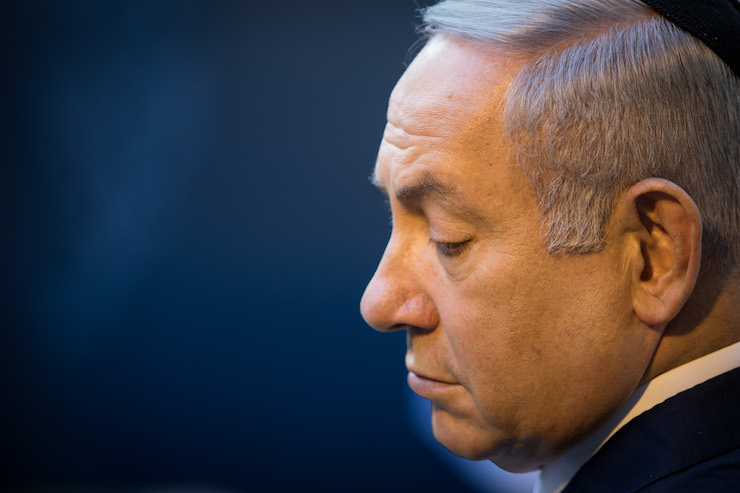
Ten years after he was elected prime minister, it is nearly impossible to imagine an Israel without Benjamin Netanyahu at its helm. An entire generation of Israelis has come of age in the Netanyahu era, and much of what young Israelis have internalized about politics, about their identity, and about Israel is the result of the legacy he has already left behind — regardless of whether he is re-elected.
In 10 years of Netanyahu’s rule, the prime minister has emboldened and been emboldened by some of the most extremist elements in Israeli society, engaged in race-baiting against his own citizens, cozied up to authoritarian and anti-Semitic leaders around the world, meddled in the internal politics of Israel’s greatest ally, and declared the occupation a permanent, integral feature of the Israeli reality.
What he’s done differently, whether deliberately or unwittingly, is lay out in the open what previous prime ministers thought best to not openly acknowledge or declare. Israeli leaders have always been lenient toward Jewish radicals, implemented undisguised discriminatory policies against Palestinian citizens, struck deals with despotic regimes around the world, and entrenched the settlement enterprise in the occupied territories.
One of the most defining features of Netanyahu’s legacy, however, is the way in which Israeli civil and political discourse has changed on his watch. To understand the way he has changed Israel, one must first understand the ways in which Netanyahu himself was transformed by the office. While he was always viewed as an outsider in Israeli politics, even within his own party, for years the prime minister retained a certain outward respect for Israel’s minorities, the rule of law, and democratic norms.
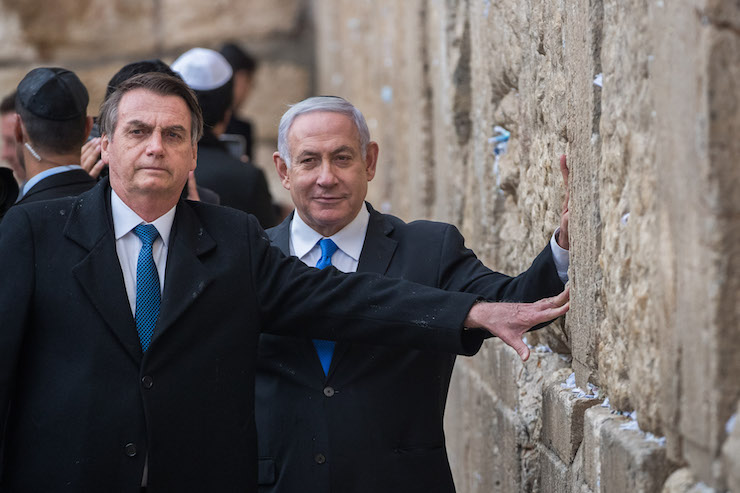
That all changed around the last elections, says Amir Fuchs, who heads the Israeli Democracy Institute’s Defending Democratic Values Program. “Some believe Netanyahu was always against the Israeli judicial system and the rule of law — but that’s simply not true,” Fuchs explains. “Before 2015, the prime minister spoke out against attacks on the courts by politicians to his right, while surrounding himself with Likud moderates such as Benny Begin and Dan Meridor or rivals from the political center such as Tzipi Livni and Yair Lapid. He did not, for example, initially openly support the Jewish Nation-State Law. That eventually ended up changing.”
The day of the 2015 elections, in a last-ditch effort to save his campaign, Netanyahu warned that left-wing organizations were busing Arabs to the polls “in droves.”
“That was racism pure and simple, and it marked a shift from the way Netanyahu had previously expressed himself,” adds Fuchs. “After the elections, he became swept up in the incitement against Israel’s Arab population led by those further to his right.”
The disdain for both Israel’s judicial system and its minorities would, over the next few years, be translated into actions, as Netanyahu began capitulating and even championing radical right-wing legislative initiatives such as the “override bill” (which would defang the High Court’s ability to overturn unconstitutional laws) and the Jewish Nation-State Law, which constitutionalizes Jewish supremacy in Israel. Whereas in previous governments Netanyahu relied on moderates like Ehud Barak and Livni to form his coalition, this time around he surrounded himself with right-wing hardliners who pushed the prime minister to support a slate of far-right and nationalist laws, both vis-à-vis the Palestinians and democratic values and institutions.
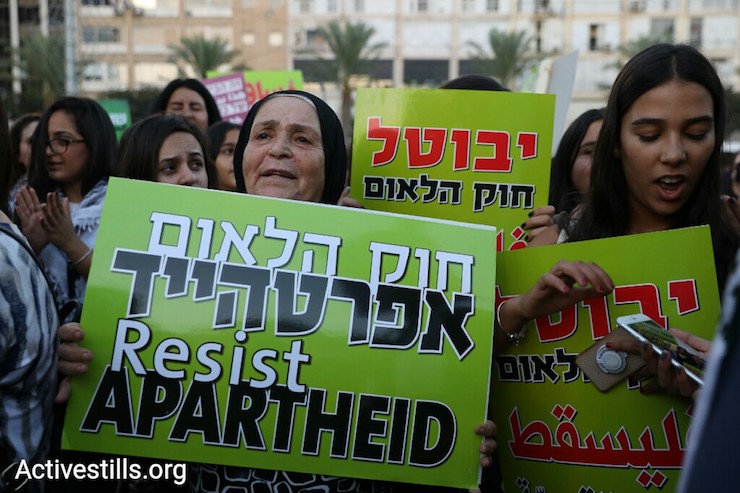
Each of Netanyahu’s governments have been more nationalist than the one that came before. As the right grew in power, playing to the most extremist elements of its base, its ideology “steadily moved from the drawing board to the law books to the real world,” Michael Schaeffer Omer-Man recently wrote. Those governments passed laws to muzzle free speech, legalize the theft of Palestinian land in the West Bank, harass human rights activists and organizations, delegitimize nonviolent resistance to the occupation, ensure dissenters are banned from entering the country, and stripping Arabic of its status as an official language, among others.
But it is the attacks on Palestinian citizens that have come to define the changes we have seen in Netanyahu’s Israel. The kind of unabashedly racist rhetoric that was once the bread and butter of fringe political groups like the followers of Meir Kahane or strongmen like Avigdor Liberman has become a legitimate part of the public discourse.
“Over the past 10 years, we have seen a tsunami of incitement by the successive Netanyahu governments toward the Arab public,” says Basha’er Fahoum-Jayoussi, a Palestinian legal scholar based in Haifa.
“The Israeli ear has become trained to equate of Arabs with terror, and no one bats an eye,” Fahoum-Jayoussi told +972 just days after the prime minister gave an interview to Channel 12 News, in which he claimed, on primetime television, that Israel’s Arab parties support terrorism.
Successive Netanyahu governments have legitimized rhetoric about Palestinian citizens that Israelis, even in the mainstream, may have thought to themselves but never dared say out loud. The last few years have seen a number of watershed moments in that process. Perhaps the most blatant was when in 2016 over 1,700 wildfires erupted across Israel-Palestine, top members of Netanyahu’s government blamed Palestinians for starting an “arson intifada.” The claims turned out to be almost entirely baseless.
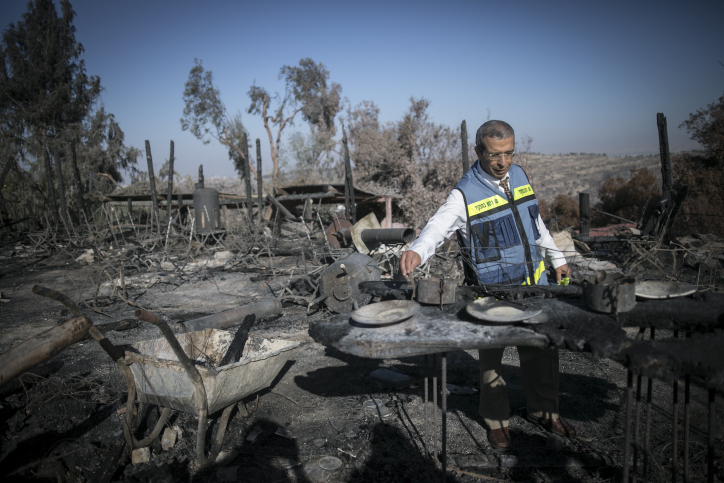
But it was the passing of the Jewish Nation-State Law that was, for many Arab citizens, a sign that no matter how seriously they took their citizenship, Israel would always view them as inferior. Although Netanyahu had several times blocked the law — the equivalent of a constitutional amendment in the Israeli system — in 2018 he pushed it through and now claims it as the crown jewel of his legislative victories.
“By attacking Palestinians, Netanyahu goes for the lowest common denominator in order to unify Israelis,” says Fahoum-Jayoussi, while noting that his government also earmarked NIS 10-15 billion to help close economic gaps plaguing Israel’s Arab community. The dissonance, she says, creates a “kind of schizophrenia, which ultimately ensures we remain dependent on the government’s good graces.”
In the occupied territories, Netanyahu’s legacy has been simpler. Although when he took office in 2009 he famously declared his support for a two-state solution in his “Bar Ilan speech,” he has now built around him a coalition of annexationists, opponents of the two-state solution, and openly declares that Israel will never give up control of the entire territory between the Jordan River and the sea.
“It’s hard to know whether Netanyahu believed in the two-solution when he delivered the speech at Bar Ilan,” says Assaf David, the co-founder and academic director of the Forum for Regional Thinking. “But as time went on, he began to understand that Israel needs to go to war against Palestinian nationalism.”
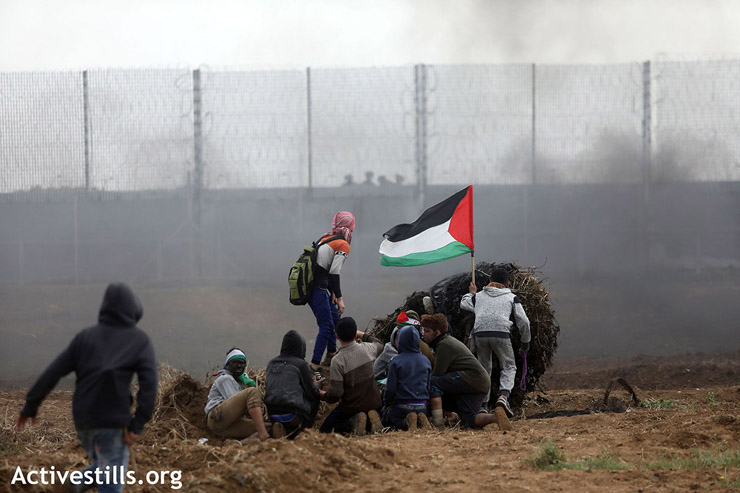
To carry out that war, Netanyahu has held fast to three ideological pillars: declaring Israel’s military rule over the West Bank, including the settlement enterprise, permanent; turning the West Bank and Gaza into two separate, distinct entities; and quashing any and all semblance of Palestinian nationalism or resistance to Israeli rule, while treating the conflict as a zero-sum game.
“At the heart of Netanyahu’s policy over the past 10 years has been the attempt to ‘de-nationalize’ the Palestinian cause,” says David. “Once he buried the possibility for a Palestinian state, his next step was to destroy Palestinian national consciousness. This kind of thinking has long existed on the right, but this prime minister is the first to actually implement and lead it. Now we see the political center and parts of the center-left going along with this mentality.”
That hasn’t been an easy task. Netanyahu has led two wars in Gaza, leading to a bloody stalemate with no end on the horizon, and saw a wave of knife attacks, shootings and car-rammings take place on his watch. Anti-occupation Israelis who insist on a national conversation about the effects of Israel’s policies on Palestinians have been labeled traitors, and the push to annex the West Bank has not only become mainstream, it is now a central goal of many governing parties.
In the eyes of many Israelis, all of that translates into a sustainable situation with relatively low casualties on the Israeli side. Rather than moving toward a solution, Israelis remain content with a reality in which they were not forced to choose between making any drastic political decisions.
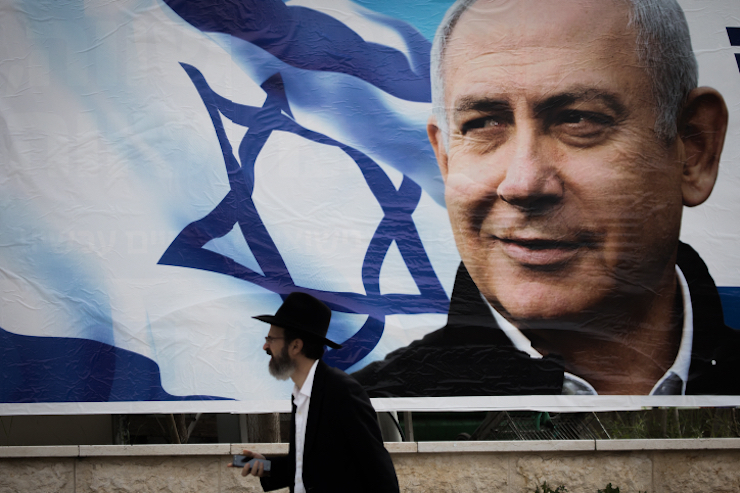
“Netanyahu has always been easily pressured by those around him, which means he can easily be dragged to the right,” says Anat Saragusti, a veteran Israeli journalist and peace activist. “He prefers to manage the conflict without taking on too many military excursions. Aside from the devastation of the 2014 Gaza war, he has remained mostly restrained.”
As long as violence directed at Israelis remains relatively low and international powers aren’t willing to place real pressure on Israel to come to an agreement with the Palestinians, the Israeli public would not have to decide between either a two-state or a one-state solution, both of which would exact enormous political and material costs. Under Netanyahu, Israelis have gotten used to the comforts of the status quo: relative quiet coupled with eternal occupation.
“The occupation is viewed by Israelis as a relic of the 90s,” Saragusti continues. “Who talks about the occupation today? We don’t physically see it, it hardly appears in the media, except for on the fringes, and politically it is a non-story.”
Of course, removing the Palestinian question from the Israeli political agenda — and that of the world — was not entirely Netanyahu’s doing, and it was only possible with broader regional changes that led to shifting priorities in the Arab world.
The Arab Spring, says David, heightened the Sunni world’s sense of danger from growing Iranian power, allowing Netanyahu to begin forming quiet alliances with Arab states that had previously considered the Jewish state their sworn enemy.
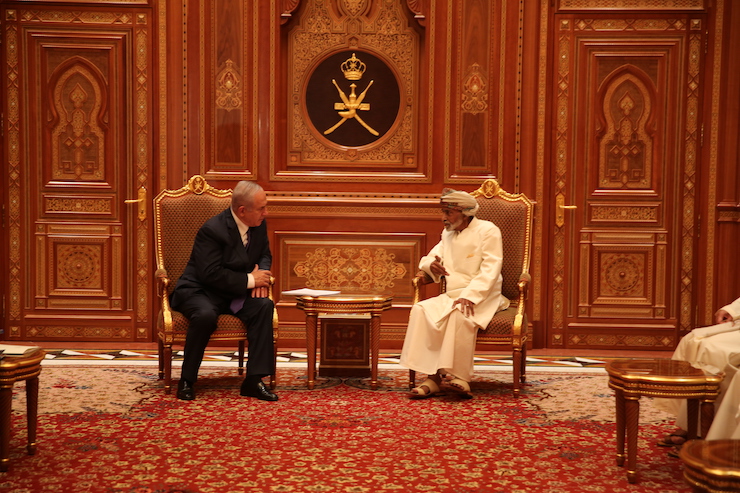
The proxy war between the Arab states and Iran, and the widespread effects of Syria’s refugee crisis, meant that the Sunni world had shifted its focus away from Palestine, David says. “Arab states care about their stability and the Syrian refugee crisis — they don’t have time to worry about Palestinian refugees or the Israeli-Palestinian conflict.”
“Now, the Palestinian national movement is facing a major crisis vis-à-vis the Arab world, and the lack of pressure on Israel, coupled with the growing pressure on the Palestinians from every direction, could eventually lead to an implosion that could force Israel to take back full military control of the West Bank or Gaza,” David added.
It is time to acknowledge that the influence and changes Benjamin Netanyahu has had on Israel and its society, the region, and the international discourse on Palestine, are not mere trends but his very legacy. Whether he is reelected to build on that legacy or leaves it for others to cope with is almost beside the point.
“Rhetoric has the power to create reality, and the kind of rhetoric that has sprouted here is increasingly dangerous,” Saragusti concluded. “People are afraid of identifying as left-wing, while Palestinian citizens are increasingly being pushed out of the democratic game — once you push minorities out of this game, what does this say about our democracy? This should have the political leadership extremely worried. Netanyahu has led this move and created a recipe for disaster.”

